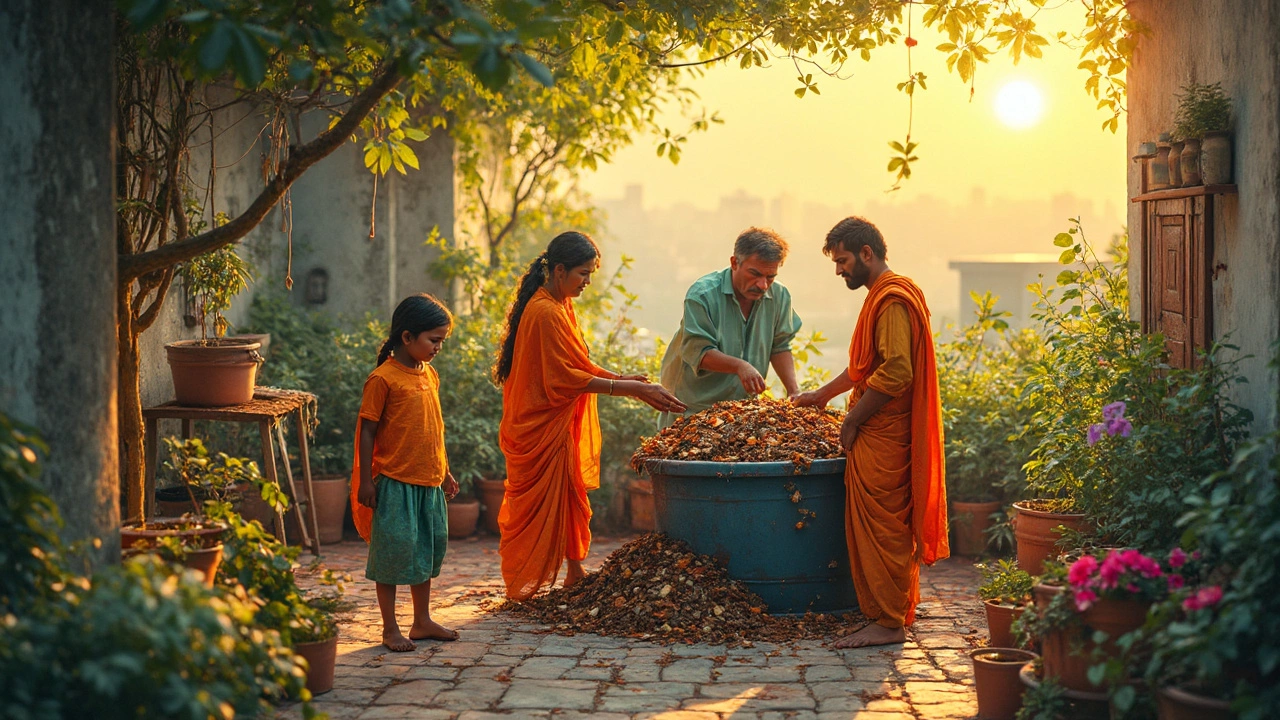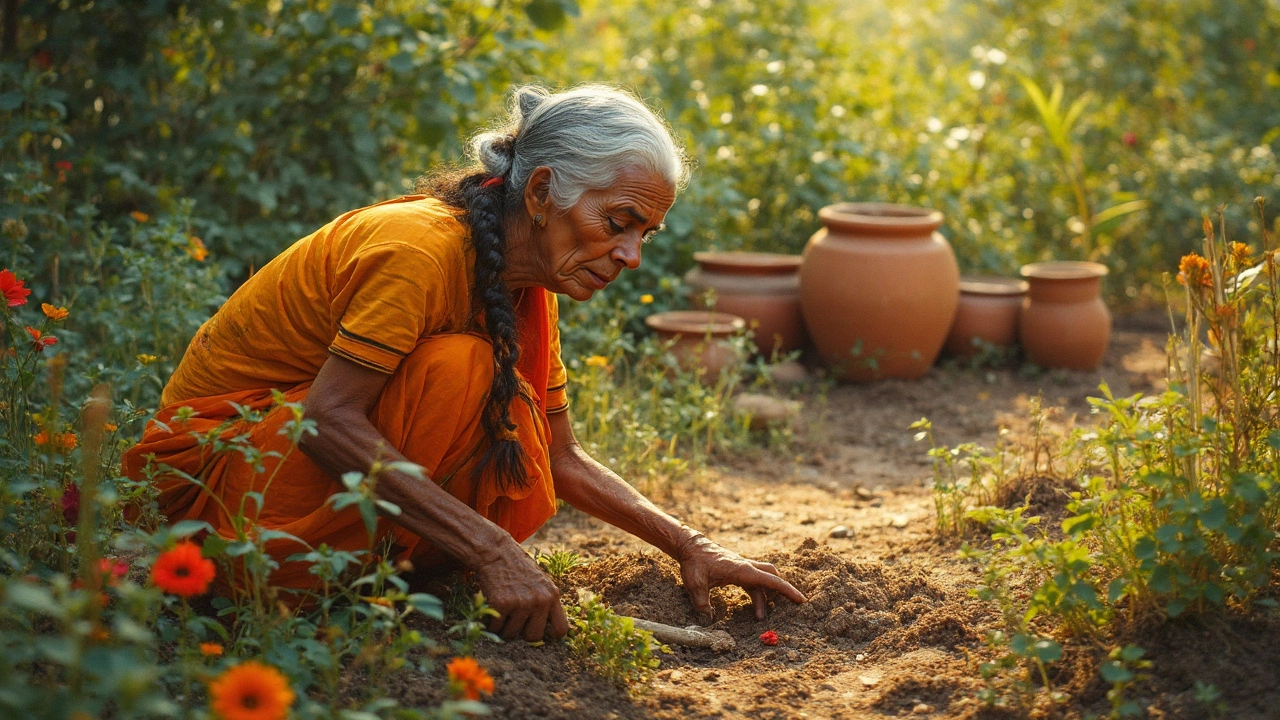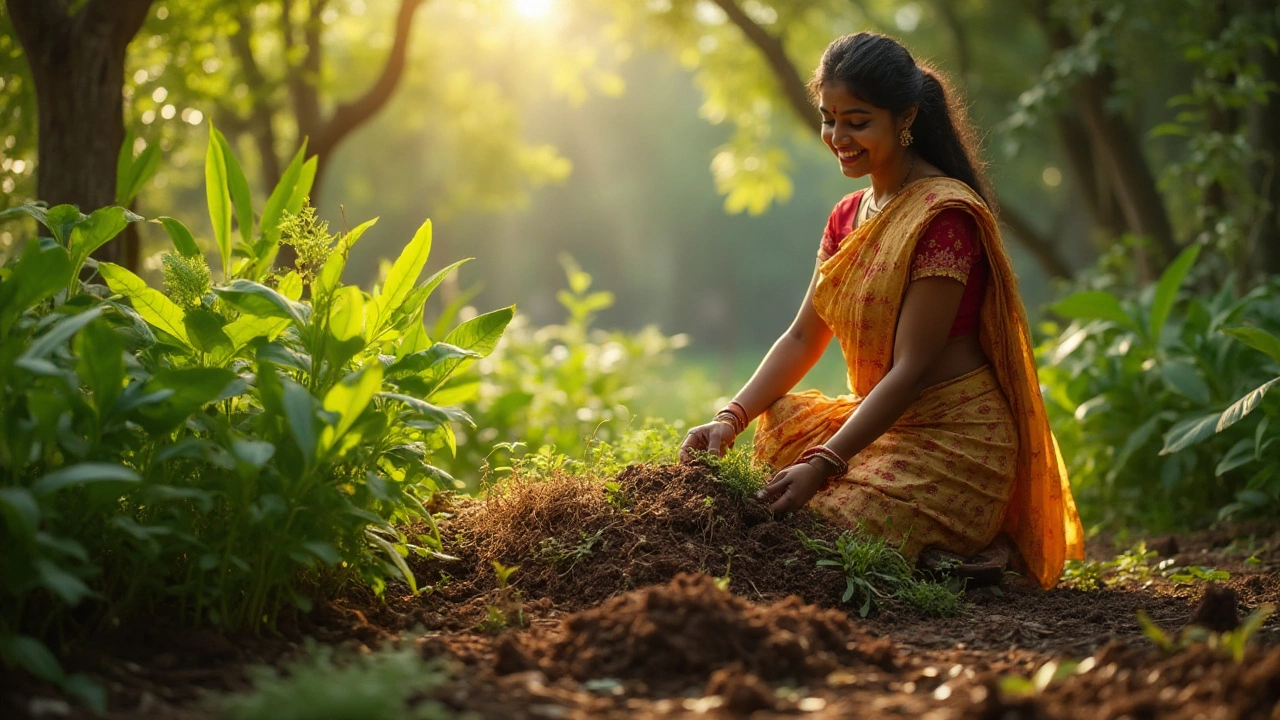Composting is a great way to recycle organic waste and enrich soil, but it's not without its challenges. From smell and pest issues to the time commitment and space requirements, there are several drawbacks to consider. However, with the right tips and tricks, you can overcome these obstacles and have a successful composting experience. Here, we explore the common issues faced in composting and offer practical solutions to make it work for you.
Organic Compost: What It Is, How It Works, and Why Every Indian Garden Needs It
When you think of organic compost, a natural, nutrient-rich soil amendment made from decomposed plant and food waste. Also known as black gold, it’s the quiet hero behind every healthy plant in India’s kitchens, balconies, and farms. It’s not magic. It’s biology. Leftover vegetable peels, coffee grounds, dry leaves, and even crushed eggshells don’t just disappear—they transform. Over weeks, microbes, worms, and air turn them into dark, crumbly soil that feeds plants without chemicals. This is how nature recycles, and it’s exactly why so many Indian gardeners skip store-bought fertilizers and make their own.
What makes organic compost, a natural, nutrient-rich soil amendment made from decomposed plant and food waste. Also known as black gold, it’s the quiet hero behind every healthy plant in India’s kitchens, balconies, and farms. work so well is the balance. You need brown materials, carbon-rich dry matter like dried leaves, straw, or shredded paper and green materials, nitrogen-rich waste like fruit scraps, grass clippings, or tea leaves. Too much green? It smells. Too much brown? It doesn’t break down. The sweet spot? About 3 parts brown to 1 part green. Add moisture—like a damp sponge—and turn it every few days to let air in. That’s it. No fancy machines. No expensive kits. Just patience and a pile in your backyard or balcony.
And it’s not just for big farms. Even if you grow chili plants in a bucket or tomatoes on a windowsill, organic compost makes a difference. It loosens heavy clay soil, helps sandy soil hold water, and gives roots the slow, steady food they need. In places like Tamil Nadu or Punjab, where monsoon rains wash nutrients away, compost keeps the soil alive year after year. You’ll find it in nearly every post here—whether someone’s fixing dense garden soil, building a vermicompost bin from an old drum, or saving kitchen scraps for their terrace garden. You don’t need to be an expert. You just need to start.
Some people think composting is messy or time-consuming. It’s not. It’s the opposite. It’s the easiest way to reduce waste and grow better food at the same time. The posts below show you how real gardeners in India do it—using banana peels, cow dung, sawdust, or even newspaper. You’ll learn how to avoid stinky piles, how to speed things up, and which mistakes ruin a batch. Whether you’re new to gardening or have been growing for years, there’s something here that’ll help you turn trash into treasure.
Breathing new life into old garden soil is key to having thriving plants and vibrant blooms. It's about more than just digging up the dirt—knowing the right techniques and materials can make all the difference. Explore ways to naturally replenish nutrients, optimize soil pH, and improve drainage. Get tips on effective composting, mulching, and eco-friendly practices. These strategies will turn tired soil into a nourishing haven for your garden.
Organic composting is a sustainable way to recycle kitchen scraps and yard waste into nutrient-rich soil for gardening. This practice not only reduces landfill waste but also enriches the garden with essential minerals. Discover the basics of composting, ideal materials to use, and smart tips to optimize the process. With patience and proper care, creating your own compost becomes an easy and rewarding task. Learn how to create a thriving compost pile at home with simple techniques.


